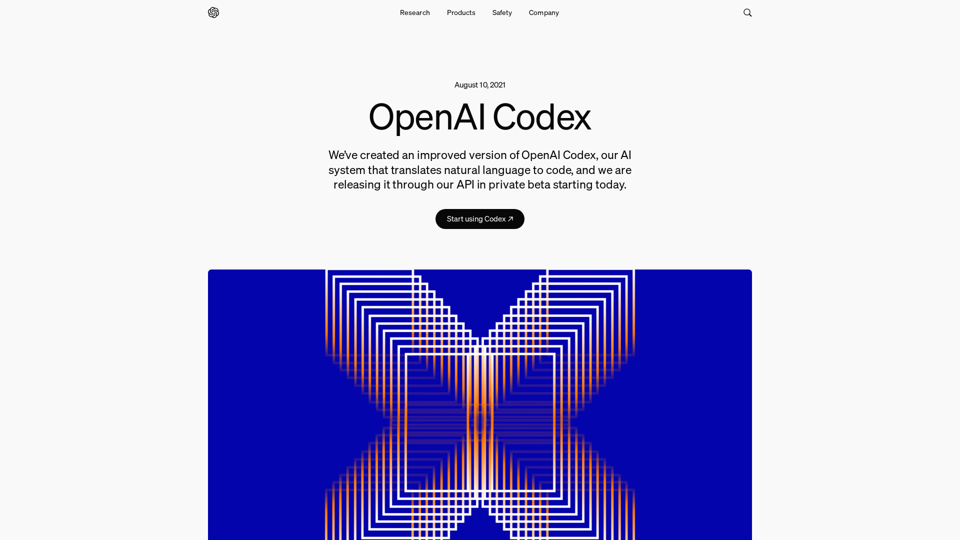What is OpenAI Codex?
OpenAI Codex is an AI system that translates natural language to code, proficient in more than a dozen programming languages, including Python, JavaScript, Go, Perl, PHP, Ruby, Swift, TypeScript, and Shell.
Features of OpenAI Codex
- Can interpret simple commands in natural language and execute them on the user's behalf
- Has a memory of 14KB for Python code, compared to GPT-3 which has only 4KB
- Can take into account over 3x as much contextual information while performing any task
- Can be applied to essentially any programming task, such as transpilation, explaining code, and refactoring code
How to use OpenAI Codex
- Available in private beta via the OpenAI API
- Can be used to build a natural language interface to existing applications
- Can be used to empower computers to better understand people's intent, making it easier for everyone to do more with computers
Pricing of OpenAI Codex
- Initially offered for free during the private beta period
- Will be scaled up as quickly as possible while ensuring safety and reviewing applications
Helpful Tips for Using OpenAI Codex
- Can be used to automate repetitive coding tasks, freeing up time for more creative and high-level tasks
- Can be used to improve coding efficiency and productivity
- Can be used to make coding more accessible to non-technical users
Frequently Asked Questions about OpenAI Codex
- What is the difference between OpenAI Codex and GPT-3?
- OpenAI Codex is a descendant of GPT-3, but it produces working code, whereas GPT-3 generates natural language.
- Can I use OpenAI Codex for any programming task?
- Yes, OpenAI Codex is a general-purpose programming model that can be applied to essentially any programming task.
- Is OpenAI Codex safe to use?
- OpenAI is committed to ensuring the safety of its technologies, and will be reviewing applications and incrementally scaling them up while working closely with developers to understand the effect of its technologies in the world.
